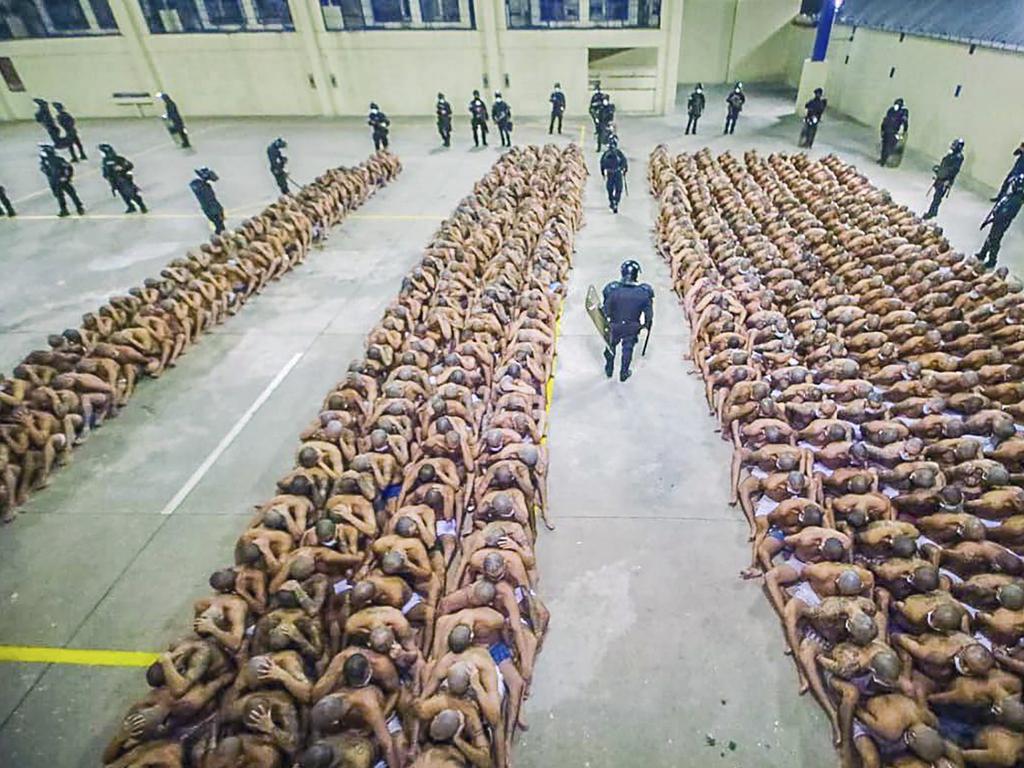El Salvador now has about 100,000 prisoners, says the Security Ministry. This spike follows President Nayib Bukele’s steps against gangs.
Since March 2022, police have arrested over 72,600 people for suspected gang links, says Justice Minister Gustavo Villatoro.
The country jailed 1.6% of its 6.3 million residents. This is three times higher than the U.S., double Cuba’s rate, says the World Prison Brief.
The last official data came out in 2020, before Bukele’s emergency moves.

Human rights groups question Bukele’s methods but admit crime has fallen. El Salvador was once the world’s most violent nation due to gangs like MS-13.
Bukele launched a crackdown in March 2022. Supporters say this made the country safer.
Critics like Abraham Abrego from the group Cristosal argue these arrests are often wrongful. “They are arbitrary mass detentions,” said Abrego.
The country’s largest jail, Cecot, can house 40,000 but now holds 12,000. During a recent visit, reporters found 80 inmates in one cell with hard beds.
A report by Human Rights Watch and Cristosal noted 90 prison deaths since 2022. But Cecot’s director says no deaths occurred there.
Villatoro announced plans to speed up court cases for current inmates. Older jails now have 88,000 people, up from 30,000.
The government aims to prove it respects human rights in Cecot. However, Villatoro criticizes human rights groups for focusing on criminals.
“They have rights, but limited,” he says.
Background
El Salvador has a history of gang violence, making it one of the most dangerous countries. The gang MS-13 originated from Salvadorans deported from the U.S.
This created a cycle of crime and poverty that has been hard to break. Previous administrations tried to deal with gangs but had little success.
Bukele’s strong measures have a dual effect: lowering crime but raising ethical questions. While the crime rate is falling, the high imprisonment rate poses long-term problems.

